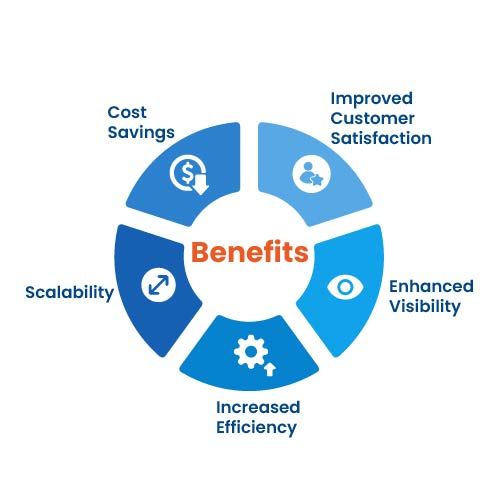Unlock Supply Chain Efficiency with Logistic ERP
In today's fast-paced business environment, efficiency and accuracy are crucial, especially when it comes to managing supply chains. Every link in the chain must work seamlessly to ensure timely deliveries, cost-effectiveness, and customer satisfaction. To meet these demands, businesses require a robust solution that integrates and optimizes every aspect of logistics operations. Introducing Logistic ERP, a powerful tool designed to transform supply chain management, brought to you by Assimilate Technologies.
Exploring the Essence of Logistic ERP
Logistic ERP is an all-encompassing Enterprise Resource Planning system tailored specifically for logistics and supply chain management. It serves as a centralized platform, consolidating various functions such as procurement, inventory management, order processing, transportation, and warehousing into one cohesive ecosystem. Assimilate Technologies has meticulously engineered its Logistic ERP solution to tackle the unique challenges faced by modern supply chains, offering a suite of features that enhance visibility, efficiency, and decision-making capabilities.
Key Features of Logistic ERP :
Key Features of Logistic ERP :
1. Inventory Management : Assimilate Technologies' Logistic ERP offers real-time visibility into inventory levels, allowing businesses to optimize stock levels, minimize stockouts, and reduce carrying costs. Automated replenishment and demand forecasting features ensure optimal inventory management across the entire supply chain network.
2. Order Processing and Fulfillment : Streamlining the order processing and fulfillment process is essential for improving customer satisfaction and reducing lead times. Logistic ERP automates order processing workflows, from order entry to shipment, ensuring accuracy and efficiency at every stage. Integration with e-commerce platforms and logistics partners enables seamless order fulfillment and delivery management.
3. Transportation Management : Effective transportation management is critical for minimizing costs and maximizing efficiency in supply chain operations. Logistic ERP provides robust transportation management capabilities, including route optimization, carrier selection, and freight tracking. Advanced algorithms and analytics help optimize transportation networks, reduce transit times, and enhance delivery performance.

4. Warehouse Optimization : Warehouse operations significantly impact supply chain efficiency. Logistic ERP helps optimize warehouse layouts, streamline picking and packing processes, and improve inventory accuracy through barcode scanning and RFID technologies. Automated workflows and real-time monitoring increase warehouse productivity and reduce operational costs.
5. Analytics and Reporting : Data-driven insights are essential for informed decision-making and supply chain optimization. Logistic ERP offers powerful analytics and reporting tools that provide actionable insights into key performance metrics such as inventory turnover, order fulfillment rates, and transportation costs. Predictive analytics and business intelligence help identify trends, anticipate demand fluctuations and address supply chain challenges proactively.
Benefits of Logistic ERP for Supply Chain Management :
Benefits of Logistic ERP for Supply Chain Management :
1. Increased Efficiency : By automating processes and optimizing workflows, Logistic ERP streamlines operations and reduces cycle times, resulting in greater efficiency across the supply chain.
2. Enhanced Visibility : Real-time visibility into inventory levels, order statuses, and transportation activities enables businesses to track and monitor supply chain operations closely, facilitating better decision-making and proactive problem-solving.
3. Cost Savings : Optimization of inventory levels, minimization of stockouts, and streamlining of transportation routes lead to reduced operational costs and improved profitability.
3. Improved Customer Satisfaction: Faster order processing, accurate order fulfillment, and on-time deliveries enhance customer satisfaction and loyalty, driving repeat business and positive referrals.
4.Scalability : Logistic ERP scales seamlessly to accommodate increasing volumes and complexities as businesses grow, ensuring continued efficiency and agility in supply chain management.

Implementing Logistic ERP : A Seamless Transition
Implementing an ERP system can be daunting, but Assimilate Technologies prioritizes a seamless client transition. From initial consultation and needs assessment to deployment, training, and ongoing support, their team of experts guides businesses every step of the way, ensuring a smooth and successful implementation process.
Conclusion
In the era of rapid globalization and digital transformation, supply chain management is critical for business success. Assimilate Technologies' Logistic ERP empowers organizations to navigate this complex landscape confidently and efficiently. By harnessing the power of technology, businesses can optimize their supply chains, drive growth, and stay ahead of the competition. Embrace the future of logistics with Logistic ERP by Assimilate Technologies and revolutionize how you manage your supply chain.